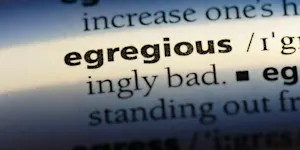What Makes This Word Tick
The word "vouchsafe" has a wonderfully old-world charm. It means to grant something in a gracious or condescending manner, often implying a sort of formal bestowal. While it might feel a bit extravagant for everyday conversation, it certainly adds a touch of elegance and flair.
If Vouchsafe Were a Person…
Picture vouchsafe as a dignified old gentleman dressed in tweeds, reading poetry by the fireside in a leather armchair. He's the kind of person who offers wisdom and blessings to those around him but always with a touch of grandeur and ceremony.
How This Word Has Changed Over Time
Originally, vouchsafe was used more freely in Middle English, appearing frequently in literature and daily discourse. Over time, it has become more of a literary or formal term, reminding us of bygone eras where language danced with a more elaborate rhythm.
Old Sayings and Proverbs That Use Vouchsafe
While not heavily featured in common proverbs, the spirit of vouchsafe resonates with sentiments about granting favor. Think of phrases that convey the act of bestowing blessings or kindness from a higher authority to a humble recipient.
Surprising Facts About Vouchsafe
A fascinating detail about vouchsafe is that it carries with it a nuanced connotation of both graciousness and condescension. It suggests that the grantor holds a position of power or privilege, offering something to someone considered less fortunate or worthy.
Out and About With This Word
You might hear vouchsafe in a Shakespearean play or encounter it in classical literature. It's the kind of word that appears in solemn religious texts, historical documents, or when an author wants to evoke a sense of grandiosity.
Pop Culture Moments Where Vouchsafe Was Used
While vouchsafe doesn't pop up often in contemporary pop culture, when it does, it's usually to evoke a sense of antiquity or to humorously highlight a character's pretentiousness.
The Word in Literature
Vouchsafe graces the pages of epic poems and ancient dramas. Authors like Shakespeare and Chaucer would have used it to convey the formal granting of requests or favors, often by royalty or deities to mere mortals.
Moments in History with Vouchsafe
Imagine vouchsafe being perfectly used during the signing of the Magna Carta, as King John "vouchsafed" certain rights to his barons, albeit somewhat begrudgingly. It captures moments where granting rights or privileges were done with a formal nod.
This Word Around the World
In many languages, the concept of vouchsafe is captured through words that mean to bestow or grant. However, the English "vouchsafe" offers a unique blend of grace and authority that isn't perfectly mirrored in every translation.
Where Does It Come From?
Vouchsafe hails from Middle English, combining "vouch" and "safe" to mean guaranteed safety. It implies not just giving but also assuring the recipient of the gift's value or protection.
How People Misuse This Word
People sometimes use vouchsafe as a synonym for "give" without the context of its formal or condescending nature, or they may misplace it in casual contexts where its grandeur seems out of step.
Words It’s Often Confused With
Concede: Often implies reluctant agreement, lacking the gracious element of vouchsafe.
Bestow: A closer match but doesn't inherently carry vouchsafe's condescending air.
Grant: Similar in notion but broader, lacking the implied formality and grace.
Additional Synonyms and Antonyms
Synonyms include bestow, confer, and grant. Antonyms might be refuse or withhold. These contrasting verbs show how the act of vouchsafing involves a choice to graciously give rather than deny.
Want to Try It Out in a Sentence?
Imagine a scene at a family dinner where the matriarch turns to her grandchildren and says, "I vouchsafe you the secret family recipe for apple pie, to be shared and cherished throughout generations."
















